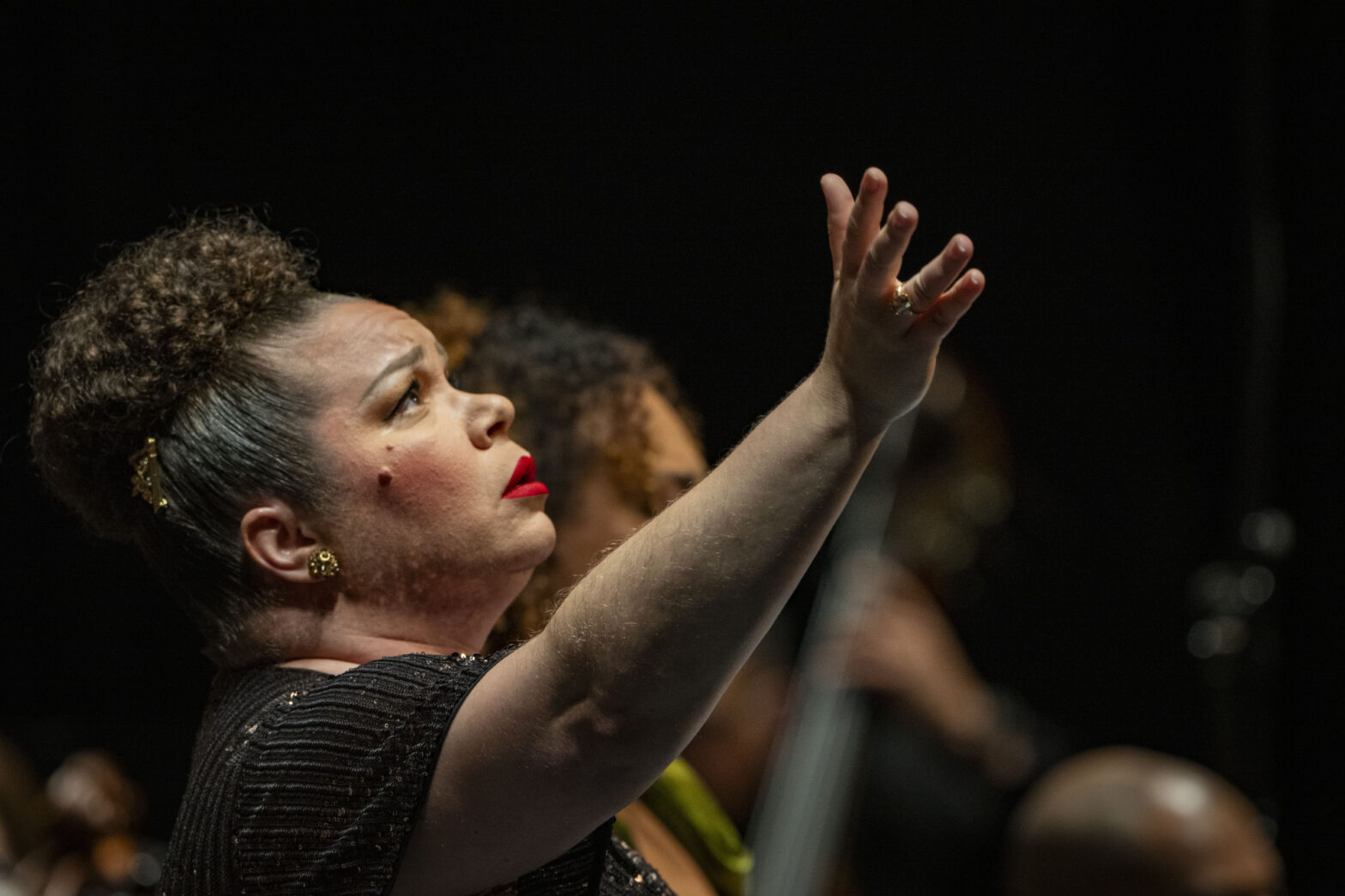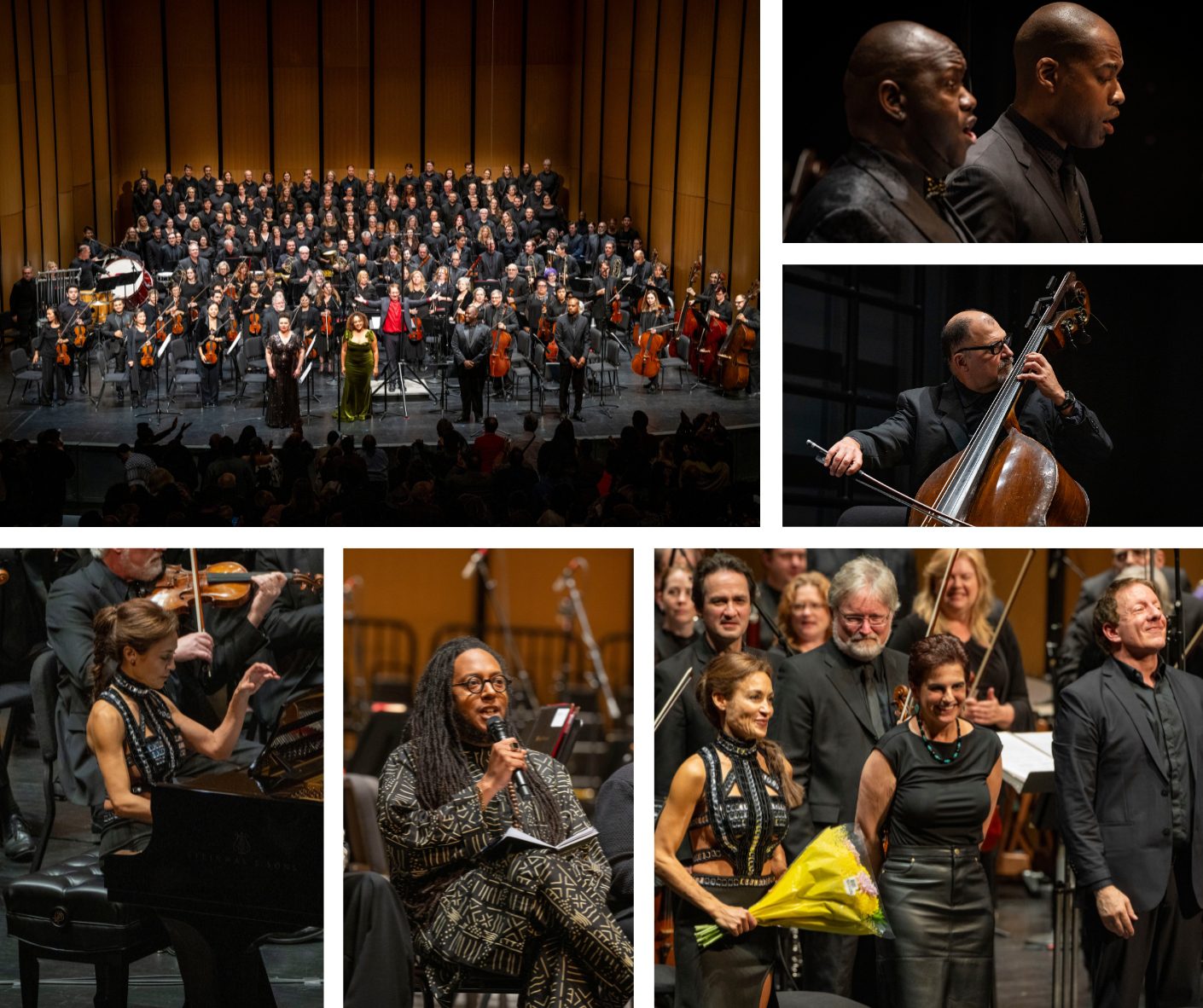
On October 18, 2025 the Chicago Philharmonic and Ear Taxi Festival presented the World Premiere of Stacy Garrop’s Invictus and the Midwest Premiere of Damien Geter’s An African American Requiem.
The concert marked the culmination of a two-year journey, shaped by imagination, collaboration, and care. From its earliest conception to its final performance, the project brought together a remarkable coalition of artists, partners, and supporters whose collective efforts made the event possible. Among them: Ear Taxi Festival, the Apollo Chorus of Chicago, Chicago Urban League, the American Composers Forum, Merit School of Music, the Harris Theater for Music and Dance, Cedille Records, and many others. It truly took a village.
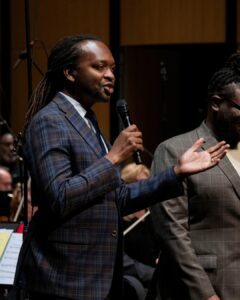
At the heart of the program were composers Damien Geter and Stacy Garrop, two extraordinary artists who have persevered in an industry not built by or for them. Through their music, they offered stories of resilience, healing, and hope.
This concert stood as a testament to what becomes possible when ideas meet opportunity. The Chicago Philharmonic was honored to present the work of these extraordinary composers and to offer a space where their music reminded us all what it means to endure, to create, and to belong.
“It’s really exciting to partner with folks, to dream something up, to bring something new into the world. The coolest thing about having a vision is that one day, years later, you get to stand in that vision made reality. Today we’re standing in Stacy’s vision, in Damien’s vision.”
-Terell Johnson, Executive Director
Stacy Garrop’s Invictus: A Dazzling Debut
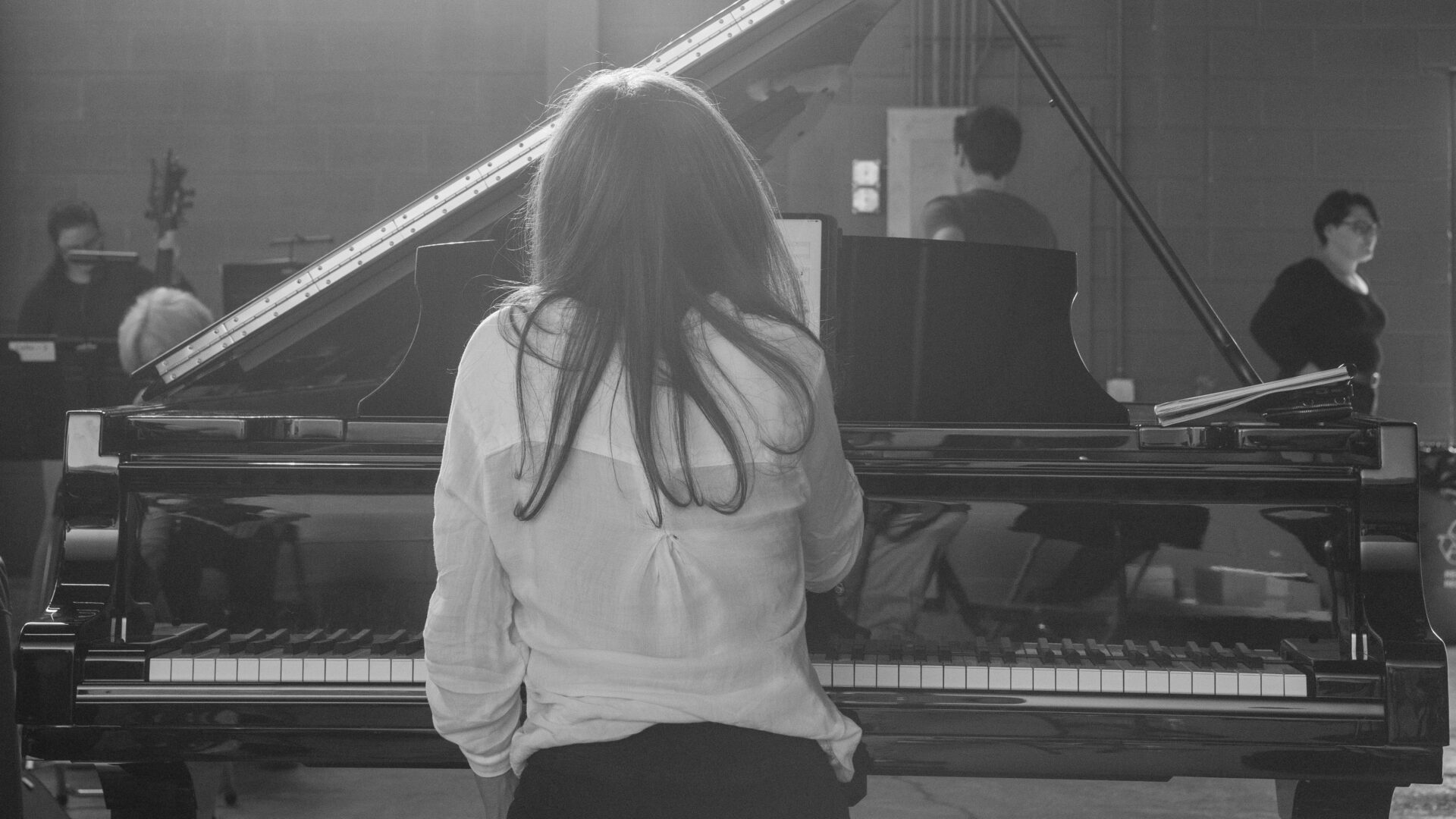
“Prolific as she is, Garrop has never written a piano concerto. She burst into the genre with Invictus, played with uncompromising intensity by pianist Marta Aznavoorian and the Chicago Philharmonic.”
—Hannah Edgar, Chicago Tribune
Anchoring the Chicago Philharmonic’s performance, and the finale of the triumphant Ear Taxi Festival, Stacy Garrop’s Invictus delivered a gripping narrative of struggle and triumph. Inspired by William Ernest Henley’s poem of the same name, the concerto cast the piano as a defiant protagonist battling against orchestral forces, an allegory of resilience rendered in bold musical strokes. The piece’s four moments follow the first four lines of the poem.
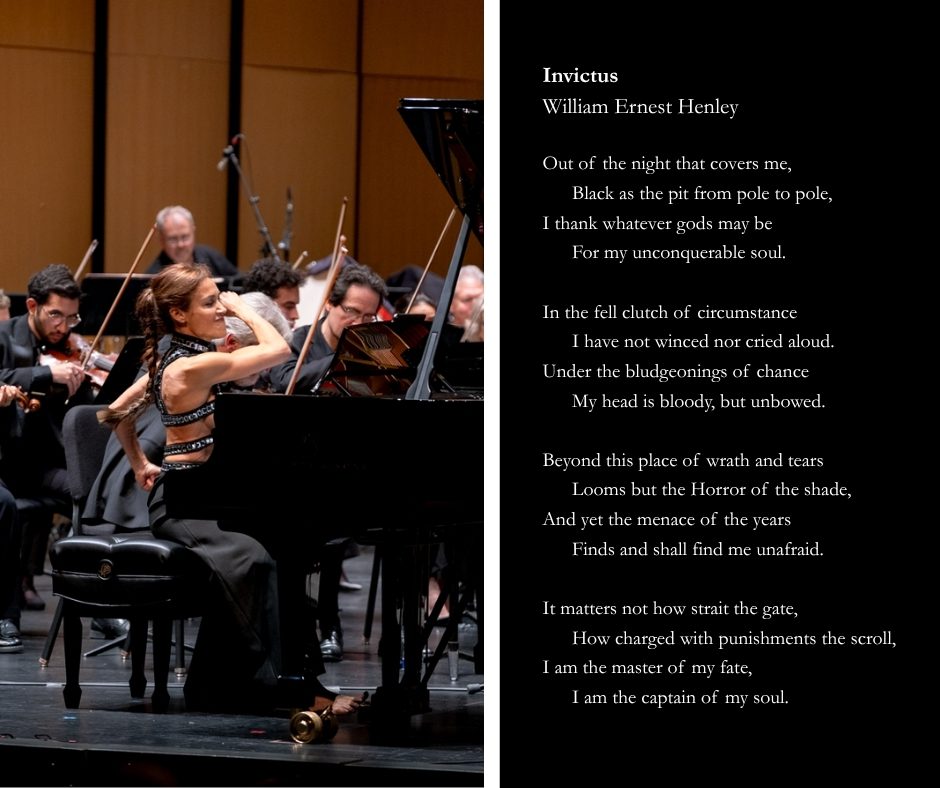
The artistic process behind Invictus was grounded in deep mutual respect and collaboration. Written specifically for Aznavoorian, the work emerged from ongoing conversations between composer and performer. The Chicago Philharmonic, under the direction of Scott Speck, provided a dynamic and responsive orchestral partner, elevating the premiere with clarity and conviction.
“We talked a lot about what she’s looking for in a concerto and I thought about what I like seeing her play. She has this great rhythmic, athletic, and driving energy that can be used very effectively.”
—Stacy Garrop on Marta Aznavoorian
“Every phrase is deeply weighted. She doesn’t just produce pieces. Every work that she does is deeply thought out, essential.”
—Marta Aznavoorian on Stacy Garrop
A recording of Invictus, performed by the Chicago Philharmonic and Marta Aznavoorian, is slated for release by Cedille Records in 2026, ensuring the concerto’s journey will continue well beyond its unforgettable debut.
Damien Geter’s An African American Requiem: A Monumental Work of Grief, Resistance, and Hope
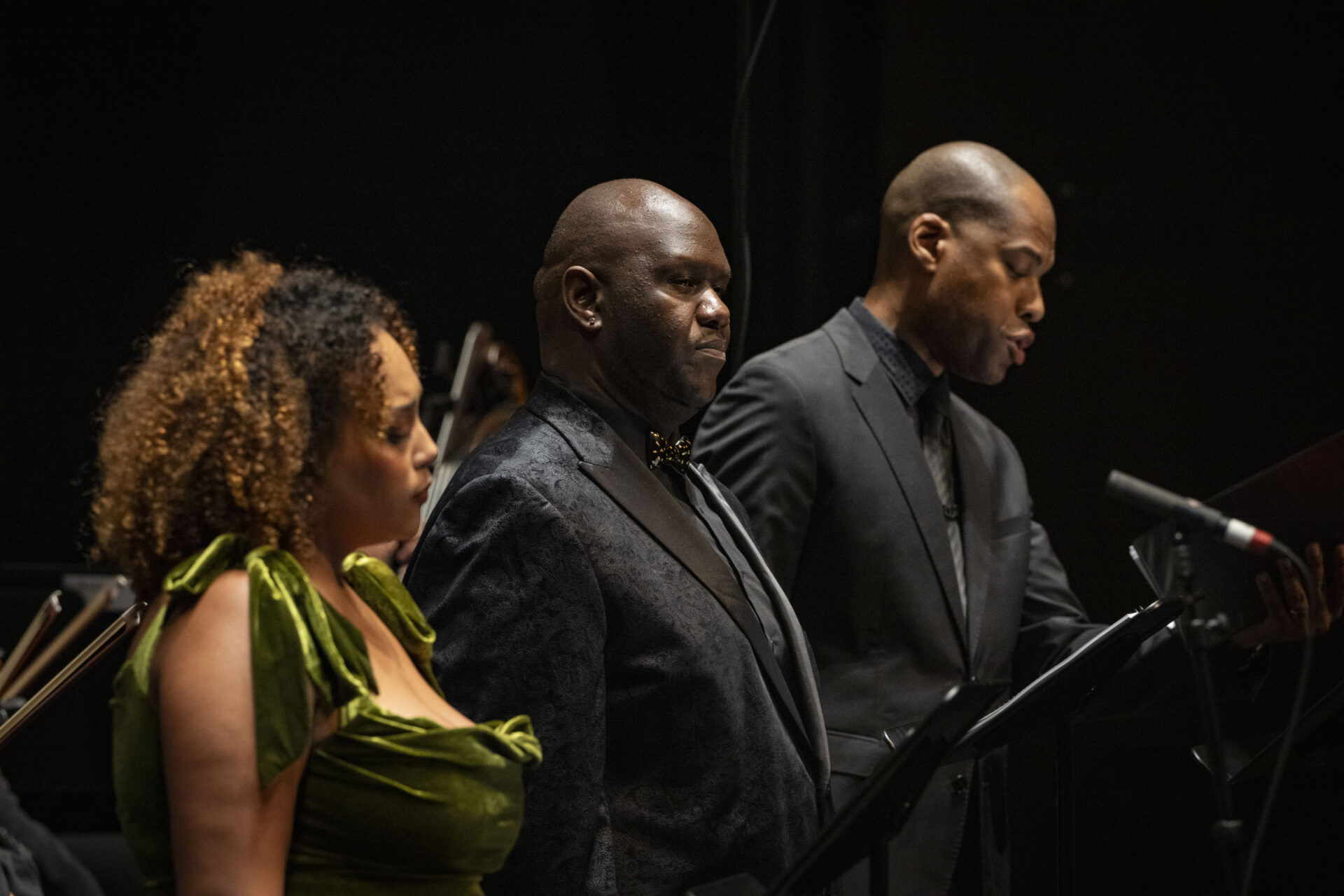
Inspired by Verdi’s Requiem and Britten’s War Requiem, Geter envisioned a piece that would honor lives lost to racial injustice while drawing deeply from Black musical and literary traditions. “If I’m looking at the past… and I’m thinking Verdi wrote my favorite requiem and I’m using that as a basis for the entire piece,” Geter explained in a discussion before the World Premiere of the piece in 2022, “and this is a piece dedicated to Black people who have been murdered in this country due to racial violence, then I need to pull from the Black diaspora.”
The result was a wide-ranging tapestry of texts and music: civil rights declarations (including Ida B. Wells’ 1909 speech “Lynching Is Color-Line Murder”), poetry, and spirituals such as There’s a Man Goin’ Round, Kumbaya, and Walk Together Children. Geter replaced select traditional Latin movements with an English counterpart. In the final movement, In paradisum (with the first line of the traditional libretto translating to “May the angels lead you into paradise”) directly quotes Walk Together Children.
“It’s hard to single out moments from a work that holds centuries of grief, endurance and memory in 80 minutes of music,” wrote Hannah Edgar in the Chicago Tribune. “But one, featuring the gleaming tenor Cameo Humes, still chills me to the bone. After a very Verdian Dies irae, Humes repeats the final words of Eric Garner with increasing desperation. As Humes’ desperation increases, however, so does the orchestra’s fury. He’s drowned out entirely by the ensemble until, what feels like an eternity later, it relents. He whispers the refrain once more in a heavy, graveyard silence: I. Can’t. Breathe.”
The performance was nothing short of riveting. From the first note to the final silence, the audience was locked in, bearing witness to a work that demanded attention, reflection, and collective reckoning.
It Takes a Village: A Full Community Experience
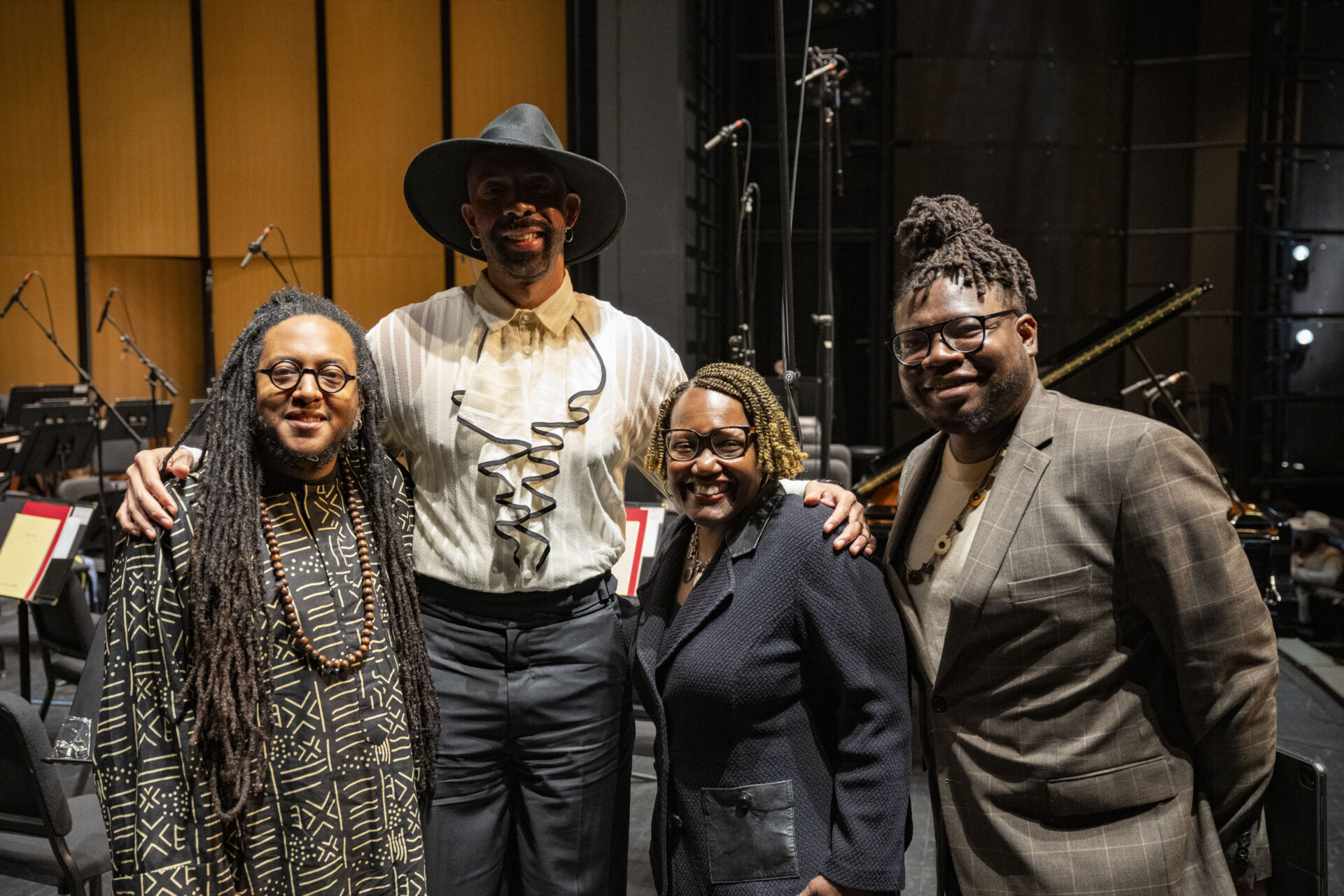
The evening began not with music, but with conversation. A pre-concert panel brought together leaders whose voices framed the performance in a broader cultural context:
- Karen Freeman-Wilson, President and CEO of the Chicago Urban League
- Loki Karuna, Executive Director of the American Composers Forum
- Damien Geter, composer of An African American Requiem
- LaRob K. Rafael, Artistic Director of the Ear Taxi Festival, serving as moderator
Their dialogue explored the intersections of art, equity, and community, underscoring how music can serve as both a mirror and a catalyst for change.
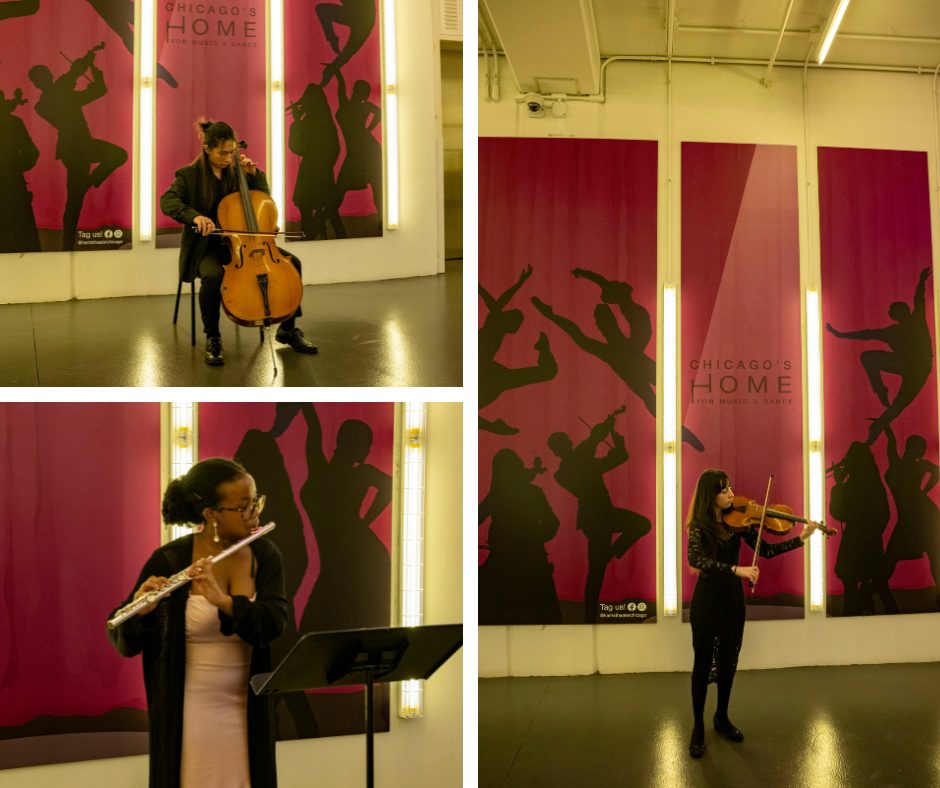
The pre-concert program also featured performances by students from Merit School of Music’s Chicago Musical Pathways Initiative (CMPI). CMPI is a training pathway designed to “identify and develop gifted and motivated orchestral students from underrepresented backgrounds for acceptance into top-tier conservatory, college, or university classical music programs in preparation for careers as professional musicians.” Their presence on stage embodied the Philharmonic’s commitment to nurturing the next generation of artists and ensuring that the future of classical music reflects the full diversity of Chicago’s communities.
By the end of the night, the atmosphere was electric. The sense of accomplishment radiated from the stage into the audience – performers, partners, and listeners alike sharing in the feeling that something extraordinary had been achieved together.
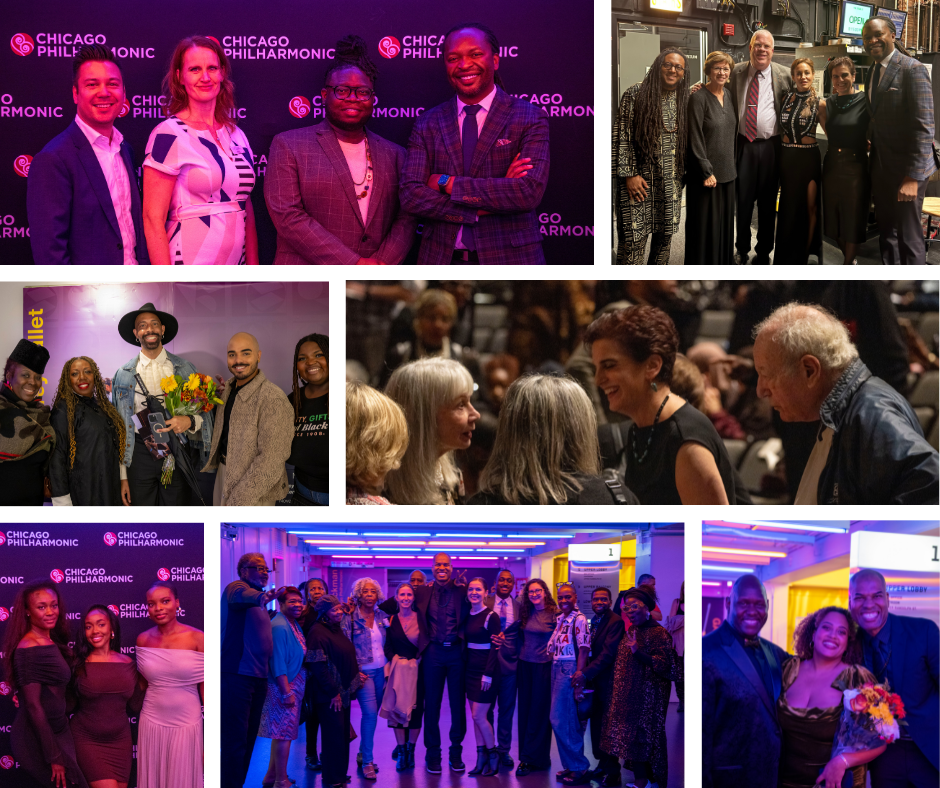
Invictus & An African American Requiem is made possible by:
U.S. Bank
American Composers Forum
The Thelma E. Hunter Fund
Eric Wassenaar and Khrystyna Savchuk, MD
Harris Theater to Music and Dance
Cedille Records
Additional support is provided by:
Duffie Adelson
Lori Ashikawa
Gustavo Bamberger
Jemia Cunningham-Elder
Bradley Daughtry and Bryan Howard
Kashanna Eiland
Robert Everson
Terell and Molly Johnson
Helen Lee Kim
Zantraquilla Madkins
Tom Manning
Stetson Marshall
R. Neale Moore
Scott Neslund
David Oskandy and Martha Garcia Barragan
Cynthia Plouché
Kortnee Quiza
Scott Speck
Jeff Yang
